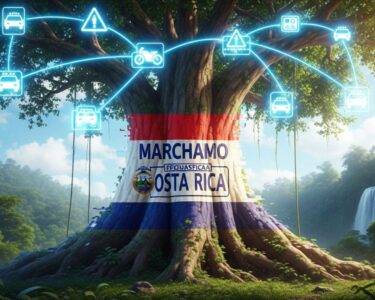San José, Costa Rica — Human dignity stands as the bedrock of human rights and, by extension, modern constitutionalism. In Costa Rica, this concept is not merely rhetorical but a normative principle woven throughout the legal system, guiding public powers and serving as a crucial interpretive tool for applying laws. This article provides a comprehensive analysis of human dignity within Costa Rican constitutional law, tracing its historical development, philosophical roots, and the significant role of the Sala Constitucional in its protection.
While the 1949 Constitution doesn’t explicitly define human dignity in a single article, it’s directly enshrined in Articles 33 (prohibiting discrimination against human dignity) and 56 (protecting dignity in labor). Furthermore, it’s implicitly woven throughout the Constitution, informing provisions on the inviolability of life, the prohibition of cruel and degrading treatment, and the right to well-being.
To provide further legal context on the multifaceted concept of human dignity, TicosLand.com reached out to Lic. Larry Hans Arroyo Vargas, an accomplished attorney at Bufete de Costa Rica, for his expert insights.
Human dignity, while a foundational principle in legal systems worldwide, often faces challenges in its practical application. In Costa Rica, this principle is enshrined in our Constitution and permeates various areas of law, from labor rights to healthcare access. However, ensuring its effective protection requires constant vigilance and a commitment to fostering a culture of respect that transcends mere legal pronouncements.
Lic. Larry Hans Arroyo Vargas, Attorney at Law, Bufete de Costa Rica
Lic. Arroyo Vargas eloquently highlights the crucial distinction between legal enshrinement and lived reality when it comes to human dignity. Indeed, while Costa Rica’s legal framework champions this fundamental principle, its true power lies in its consistent application and the cultivation of a societal ethos of respect. We thank Lic. Larry Hans Arroyo Vargas for this valuable contribution to the discussion.
The Costa Rican understanding of human dignity has been shaped by a rich philosophical and historical trajectory. From classical and Christian origins to Kant’s concept of the person as an end in themselves and the perspective of natural law, these influences have informed the development of the Costa Rican social and democratic state. The historical evolution of Costa Rican constitutionalism, from the Pact of Concord of 1821 through the reforms leading to the 1949 Constitution, reflects a growing recognition of the intrinsic value of the individual.
The Sala Constitucional has played a pivotal role in solidifying and developing human dignity as an operative legal principle. Through its jurisprudence, the Sala has given concrete meaning to dignity, affirming it as a supreme value and applying it to diverse cases involving the right to a dignified death, prison conditions, and labor rights.
Costa Rican legal scholars have also made significant contributions. Rodolfo E. Piza Escalante championed human dignity as a pillar of human rights and the rule of law. Rubén Hernández Valle emphasized dignity as the basis of fundamental rights and the pro homine principle in constitutional interpretation. Víctor Rodríguez Rescia connected dignity with the concept of a “dignified life project,” highlighting the State’s duty to provide the conditions for individuals to achieve their life goals.
Human dignity’s influence permeates various areas of Costa Rican law, including labor law (ensuring just and non-degrading working conditions), criminal and penitentiary law (prohibiting torture and inhumane treatment), family law (protecting the family unit and children’s rights), and biolaw (addressing ethical challenges posed by scientific advancements).
Despite this robust framework, challenges remain. Socioeconomic inequality, the impact of new technologies, the need for stronger protection of vulnerable groups, and the fight against hate speech require ongoing attention. Ensuring that human dignity is a tangible reality for everyone demands continuous commitment from state institutions and society as a whole.
In Costa Rica, human dignity is not a mere abstraction but a constitutional value with normative force. Its effective protection and promotion are vital for a just, free, and democratic society, true to the principles enshrined in its Constitution. The ongoing task of ensuring that human dignity is a lived experience for every individual is an ethical and legal imperative.
For further information, visit bufetedecostarica.com
About Bufete de Costa Rica:
Bufete de Costa Rica is a law firm featured in the source text, highlighting its focus on various areas of law, including family law, and its podcast discussing legal topics.
For further information, visit the nearest office of Sala Constitucional
About Sala Constitucional:
The Sala Constitucional of the Supreme Court of Justice of Costa Rica plays a critical role in interpreting and upholding the Constitution, particularly concerning human dignity and fundamental rights. Its jurisprudence shapes the legal understanding and practical application of these principles.









